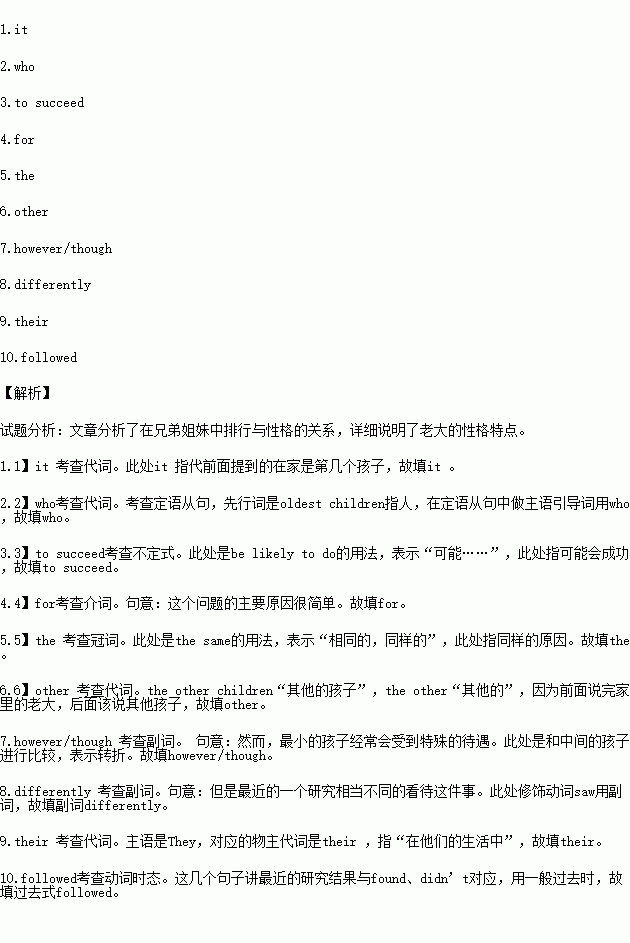题目内容
阅读下面材料,在空白处填入恰当的内容(1个单词)或括号内单词的正确形式。
Were you the first or the last child in your family? Or were you a middle or an only child? Some people think_1.__matters where you were born in your family. But there are different ideas about what birth order means. Some people say that oldest children, __2. are smart and strong-willed, are very likely_3.___(succeed). The reason 4. _this is simple. Parents have a lot of time for their first child and give him or her a lot of attention. An only child will succeed for_ 5. same reason.
What happens to the 6. _ children in the family? Middle children don’t get so much attention, so they don’t feel that important. If a family has many children, the middle one sometimes gets lost in the crowd. The youngest child, _ 7. _ , often gets special treatment. Often this child grows up to be funny. But a recent study saw things quite 8. _(difference). The study found that first children believed in family rules. They didn’t take many chances in_ 9. __lives. They usually 10._(follow) orders. Rules didn’t mean as much to later children in the family. They took chances and they often did better in life.
 开心练习课课练与单元检测系列答案
开心练习课课练与单元检测系列答案 开心试卷期末冲刺100分系列答案
开心试卷期末冲刺100分系列答案
